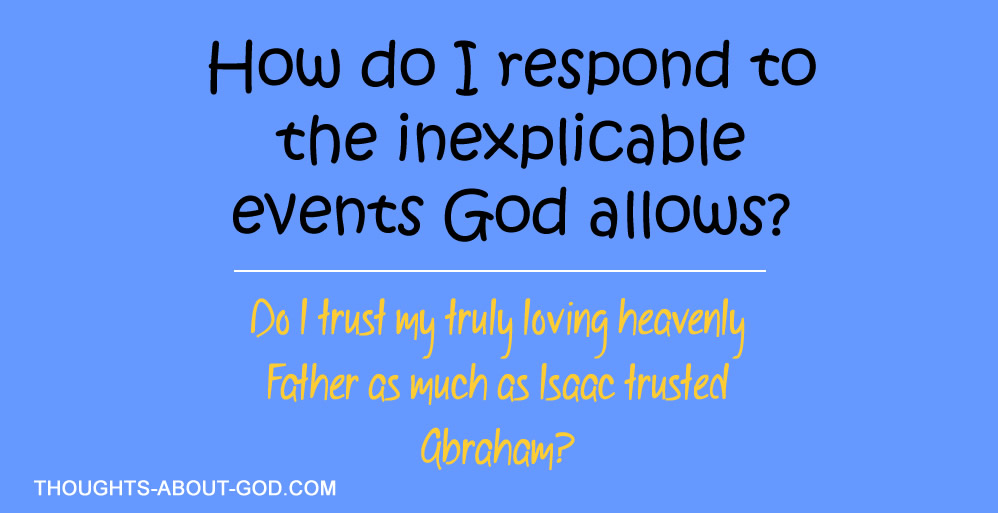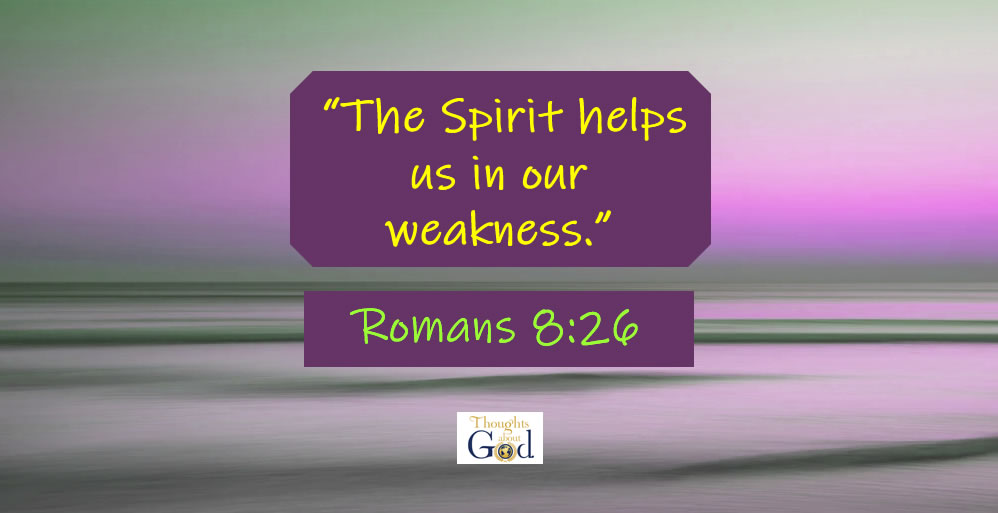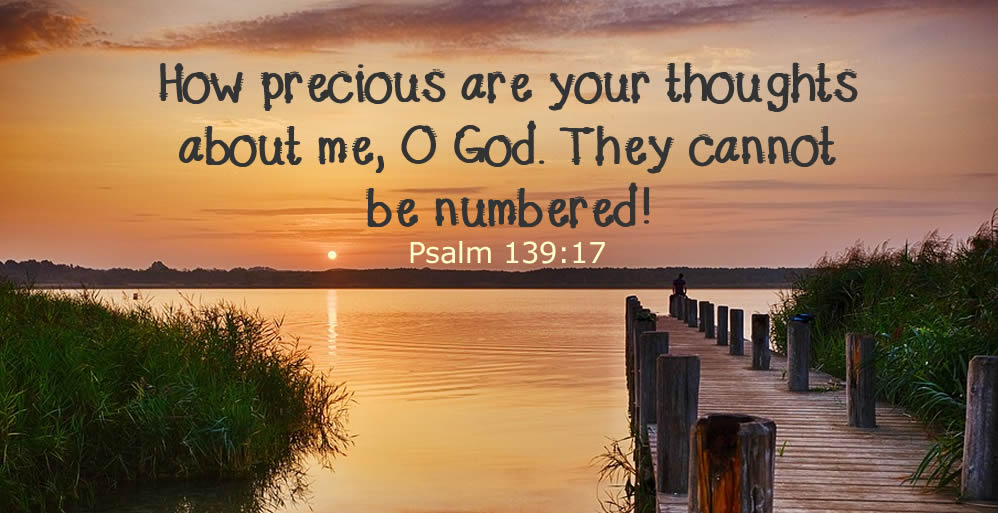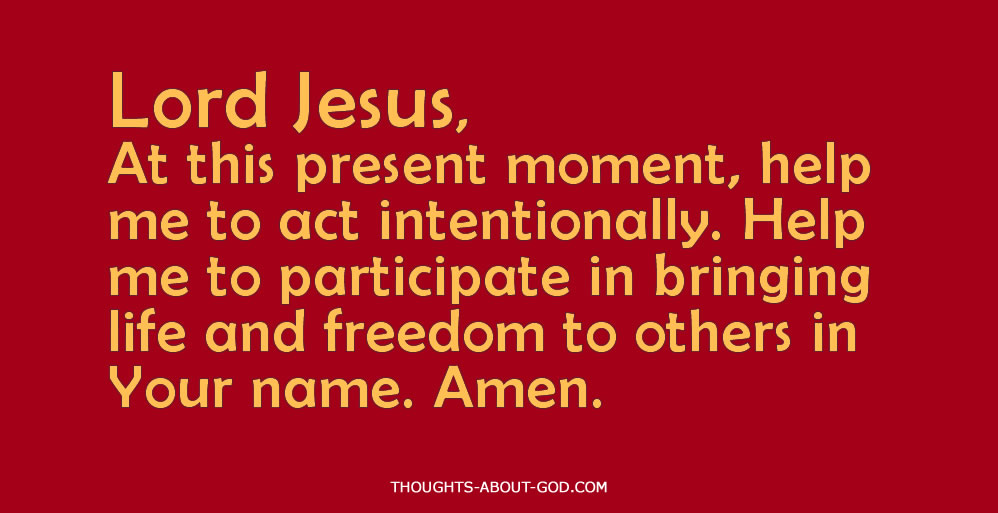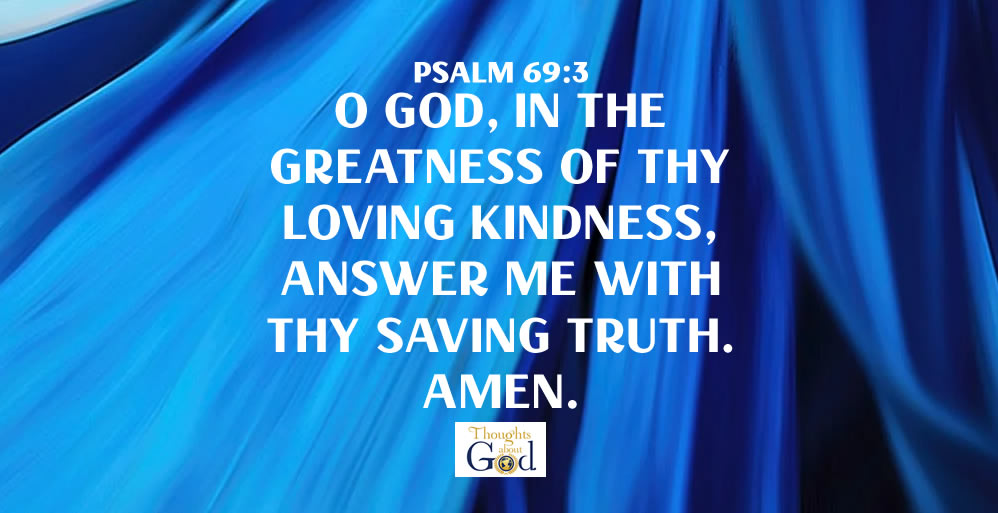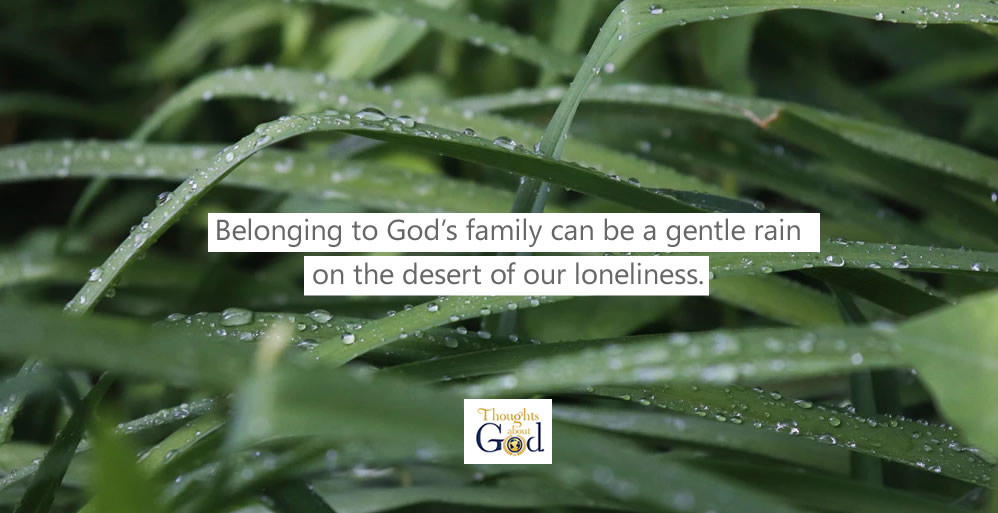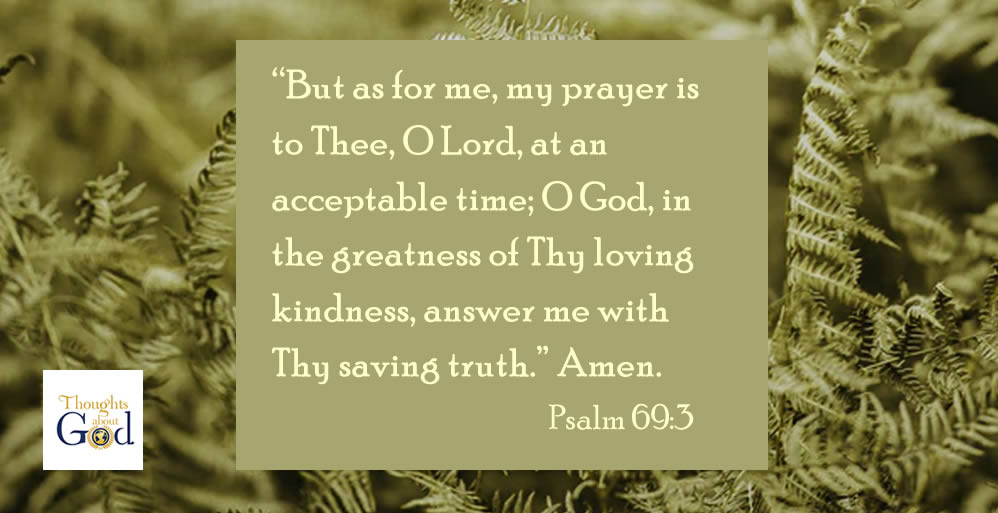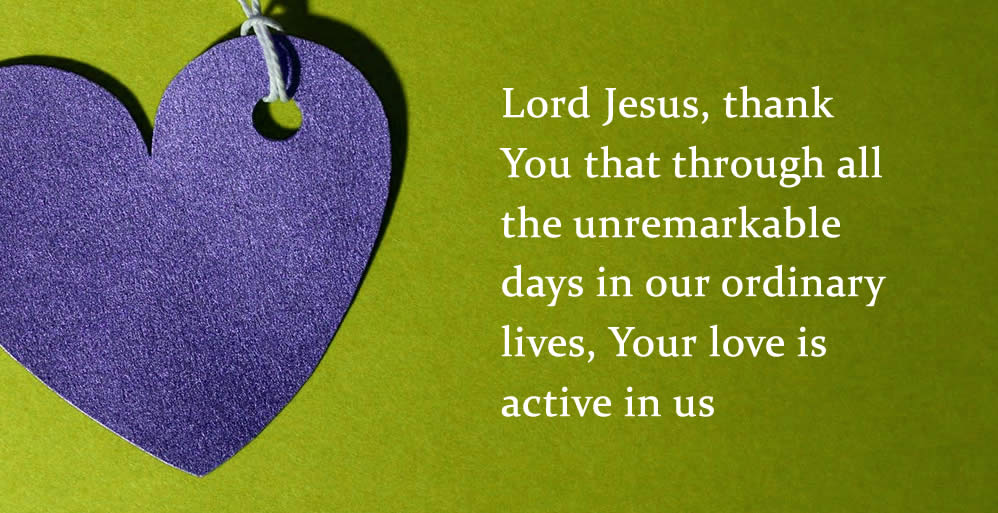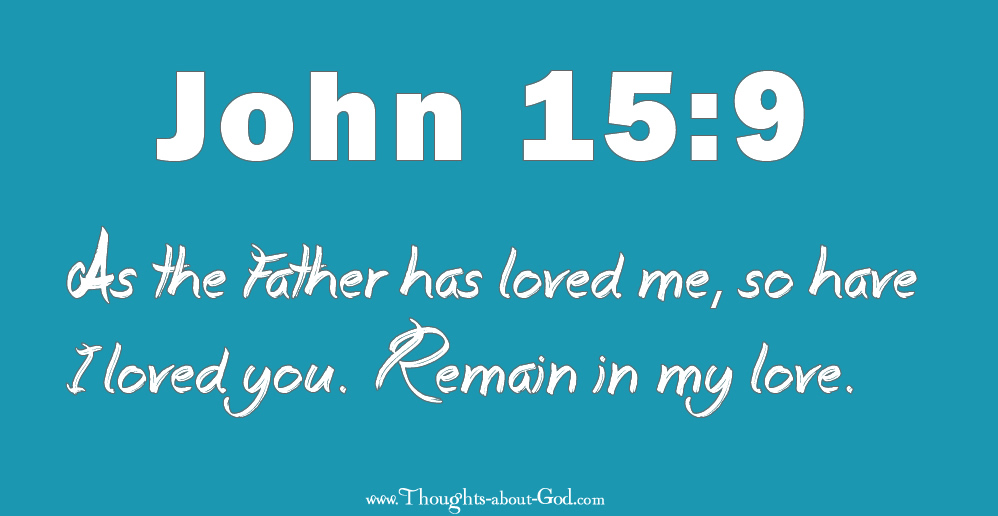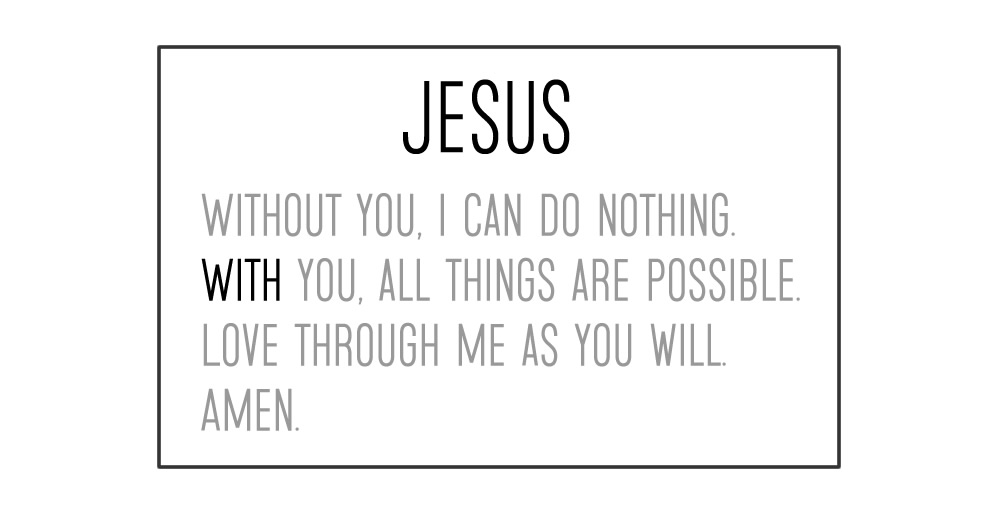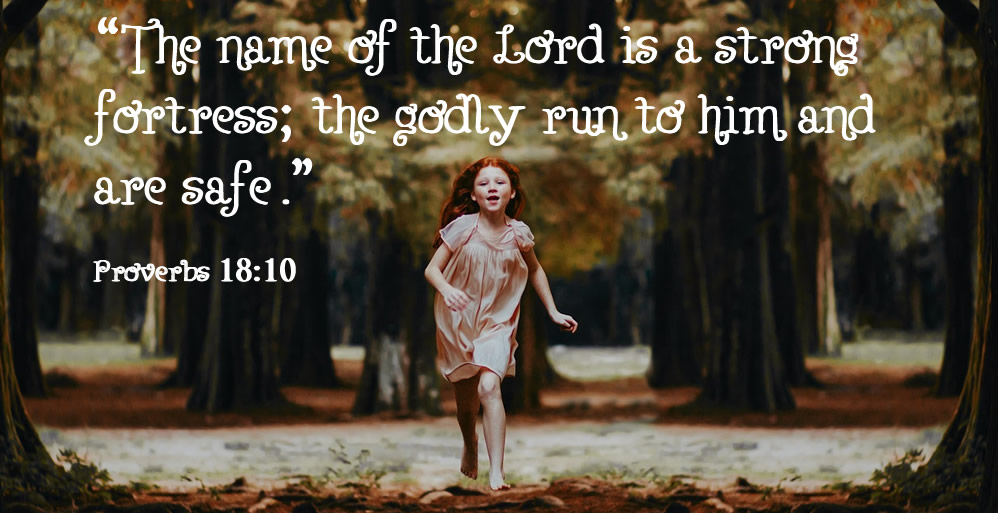“As the two of them went on together, Isaac spoke up and said to his father Abraham, ‘Father?” ‘Yes, my son?’ Abraham replied. ‘The fire and the wood are here,’ Isaac said, ‘but where is the lamb for the burnt offering?’ Abraham answered, ‘God himself will provide for the burnt offering, my son.’ And the two of them went on together.”
Genesis 22:7-8
They weren’t whiners in those days — those patriarchs. They were learning to listen to God and act on what He said. Imagine being Isaac’s father, Abraham, hearing God’s inconceivable command to sacrifice his miracle child. His adored, only child. Imagine, too, making the excruciating choice to obey, deliberately preparing for the trip, courageously starting the three-day journey.
Now imagine Isaac’s point of view. Isaac observed the absence of an offering and asked, “Where is the lamb?” Abraham’s answer showed more faith and hope — for the presence of provision — than he either knew or felt. With well-grounded confidence in his loving father, Isaac accepted the explanation.
Later, lying there tied up by his father, seeing the knife, what did Isaac feel? Incredulity, terror?
We know only that at the very last minute, he was rescued. The angel of the Lord called a halt and pointed out the replacement sacrifice — a ram which foreshadowed the perfect substitute as the sacrifice for us, Jesus, the Lamb of God.
What happened to Isaac after the consternation and shock? We never hear of a debriefing with a counselor or of him acting out in anger. Genesis 24:63 suggests he became a contemplative man. He also became a comforted man — “Isaac …married Rebekah. So she became his wife and he loved her; and Isaac was comforted after his mother’s death” (Genesis 24:67b).
As for me, how do I respond to the inexplicable events God allows? Do I trust my truly loving heavenly Father as much as Isaac trusted Abraham?
Father of love, in your divine purposes you allow things in my life that I don’t understand. I’m tempted to doubt your long range plans. I can’t see the big picture. But I can read your Word and recall the incredible rescues you orchestrated. I can thank you for setting a precedent that you are more than able to deliver me and I can trust whatever you do with my life. Amen.
By Sue Braid
Used by Permission

